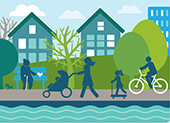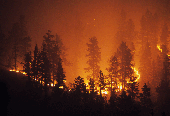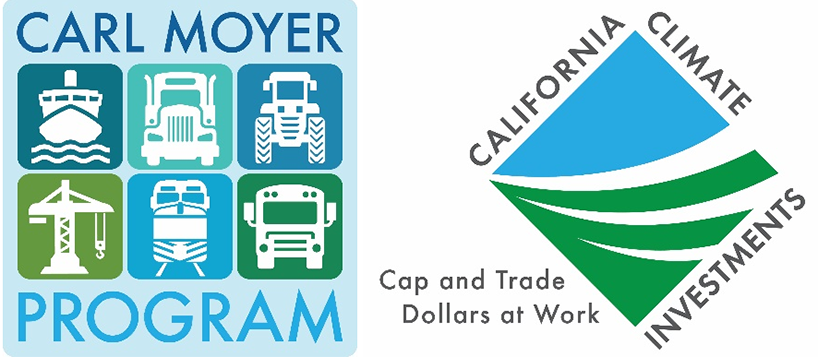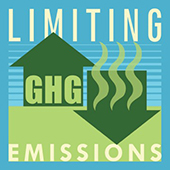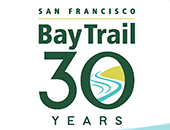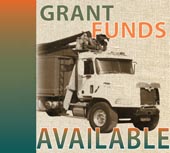|
|

|
|
|
|
August 2019 l Volume 2019-3
|
|
|
|
|
|
|
In this issue, you’ll find articles about the newly released West Oakland Community Action Plan, the Air District’s draft Wildfire Air Quality Response Program rule amendments, and grant funding available for diesel pollution reduction projects under the Carl Moyer and Community Health Protection grant programs. Other articles cover a series of workshop on draft rules and amendments aimed at reducing methane emissions, and the Bay Trail Share Your 30 contest. A summary of current grant opportunities is also included.
|
|
|
|
|
|
|
|
|
|
|
|
|
|
Air District Releases Joint Community Action Plan to Improve Air Quality in West Oakland
|
|
| | |
|
In July, the Air District and the West Oakland Environmental Indicators Project have released their joint West Oakland Community Action Plan, Owning Our Air, for public comment. The plan is the result of state law AB 617 which requires reduction of air pollution levels in selected communities with higher than average air pollution burdens.
West Oakland is bounded by the Port of Oakland, the Union Pacific rail yard and the I-580, I-880 and I-980 freeways. Elevated levels of pollution result from the concentration of industrial activity which includes maritime-freight, the rail yard and rail lines, large distribution centers, cement and asphalt plants, a power plant, metal facilities, and small to medium industrial and manufacturing operations.
Members of the public are invited to provide their comments on the plan by Monday, September 9, 2019 by 5 p.m. PST.
Public comments can also be submitted online at the Open Air Forum or emailed to the WestOaklandPlan@baaqmd.gov, or in writing to:
Alison Kirk
Principal Environmental Planner
Bay Area Air Quality Management District
375 Beale Street, Suite 600
San Francisco, CA 94105
Members of the public are also encouraged to learn more at the Air District’s town hall meeting Saturday, August 17, between the hours of 10 AM – 2 PM at:
The West Oakland Youth Center
3233 Market Street
Oakland, California 94608
|
|
|
|
|
|
|
|
|
|
|
|
|
Air District Hosted Public Workshop on Wildfire Rule Amendments
|
|
| | |
|
In late July, the Air District hosted a public workshop in San Francisco on two rule amendments that are an integral part of the Air District’s Wildfire Air Quality Response Program. At the workshops, the public, local government and industries were provided with an opportunity to learn about the draft amendments, ask questions of Air District staff and share feedback and ideas to inform the final rule-making process.
Draft amendments to Regulation 5 (Open Burning) complement statewide efforts to prevent catastrophic wildfires through prescribed burning. The draft amendments will exempt public agencies from open burning fees when conducting prescribed burns for wildfire prevention.
Draft amendments to Rule 6-3 (Wood Burning Devices) aim to further protect public health when wildfire smoke affects air quality in the Bay Area. The draft amendments would allow the Air District to call Spare the Air Alerts year-round when particulate matter is expected to exceed unhealthy levels. A Mandatory Burn Ban, which prohibits the use of wood-burning devices, would accompany these alerts.
For more information about the proposed rule amendments, and to view an archived video of the workshop, visit the Air District’s Rules Under Development web page.
The public can still submit comments on the amendments or the workshop report. To do so, contact Patrick Wenzinger at 415-749-4934 or wildfireprogram@baaqmd.gov. The comment deadline is August 12, 2019.
|
|
|
|
|
|
|
|
|
|
|
|
|
Air District Offers More than $50 million in Grants to Reduce Diesel Air Pollution
|
|
| | |
|
The Air District is accepting applications for grant funding for projects that reduce toxic air emissions and ozone-forming pollutants from older, higher-polluting diesel engines. More than $50 million in grant funding from the Community Health Protection Grant Program and the Carl Moyer Program will be available.
Eligible equipment includes medium and heavy-duty trucks and buses, mobile construction and industrial equipment, marine vessels, locomotives and school buses.
Funding is available for projects that:
- Replace older diesel equipment with newer, cleaner equipment
- Replace older diesel engines with newer, cleaner engines or convert to zero-emissions power systems
- Install electric charging or fueling infrastructure in support of new zero- or near-zero emissions equipment
Authorized by California state law AB 617, the Air District is working with local community residents through the Community Health Protection Program to employ proven and innovative strategies to improve community health by reducing exposure to air pollutants in neighborhoods most impacted by air pollution.
The Air District will prioritize applications for projects that reduce emissions in the communities of West Oakland, Richmond-San Pablo, East Oakland-San Leandro, Eastern San Francisco, Pittsburg-Bay Point, San Jose, the Tri-Valley and Vallejo.
Air District staff are available to answer questions about the application process and grant requirements. For more information about these grant programs and to start an application online, visit the Air District’s Carl Moyer Program and Community Health Protection Grant Program web pages.
|
|
|
|
|
|
|
|
|
|
|
|
|
Public Workshops Held on Climate Pollutant Regulations
|
|
| | |
|
In June, the Air District held a series of public workshops on new efforts to mitigate emissions of climate pollutants and volatile organic compounds from organic materials in the Bay Area. The workshops were hosted in San Francisco, Richmond and Milpitas and provided an opportunity for Bay Area residents to learn about the draft rules, speak with Air District staff, ask questions and provide feedback.
The new draft rules and amendments under consideration are part of the Air District's Basin-Wide Methane Strategy (as outlined in the 2017 Clean Air Plan).
Regulation 13, Rule 2: Organic Material Handling is a new rule designed to address emissions of methane and odors from facilities processing organic materials in the Bay Area. Rule 13-2 may include requirements for best management practices, odor impact monitoring and enhanced odor control standards.
Regulation 13, Rule 4: Sewage Treatment and Anaerobic Digestion is a new rule being developed to minimize emissions of methane from municipal sewage treatment and anaerobic digester operations in the Bay Area.
Amendments to Regulation 8, Rule 34: Solid Waste Disposal Sites will address emissions of methane and non-methane organic compounds from landfills in the Bay Area.
All supporting documents, such as the workshop report and draft regulatory language for Rule 13-2, and concept papers for Rules 13-4 and 8-34, have now been posted to the Air District’s website on the Rules Under Development web page.
|
|
|
|
|
|
|
|
|
|
|
|
|
Bay Trail Launches Share Your 30 Contest
|
|
| | |
|
To celebrate its 30th Anniversary, the Bay Trail has launched a Share Your 30 Contest to encourage people to get out on the Bay Trail and share short videos and photos of how they enjoy their experiences on Facebook, Twitter and Instagram to inspire others to get on the trail, too! Winners will be chosen by a panel based on creativity, unique aesthetics, community engagement and relevance to the Share Your 30 concept. The contest runs through August 15.
For details on how to enter the contest, visit the Bay Trail website.
The Air District encourages residents to take public transit to the Bay Trail this summer and post away!
|
|
|
|
|
|
|
|
|
|
|
|
|
Air District Offers Millions in Grants
|
|
| | |
|
The Air District administers a number of grant funding programs that offer incentives for clean air projects. Grant Programs Currently Open
For public agencies and business
Equipment/Engine Replacement/Repower or Conversion and Infrastructure
- Community Health Protection Grant Program – The Air District is offering $40 million in grant funds to reduce toxic air emissions and ozone-forming pollutants from older, polluting diesel engines through the Community Health Protection Grant Program. Priority is given to projects that reduce emissions in AB 617 communities and communities for future AB 617 consideration: West Oakland, Richmond-San Pablo, East Oakland/ San Leandro, Eastern San Francisco, Pittsburg-Bay Point area, San Jose, Tri-Valley area, and Vallejo. Community input will play an important role by informing the Air District’s project outreach and project identification processes and will support the cleanest available technologies. Applications are currently being accepted on a first-come, first-served basis until all funds are awarded to owners of eligible equipment and vehicles by June 2020. www.baaqmd.gov/ab617grants
- Carl Moyer Program / FARMER– More than $10 million is available for projects to upgrade or replace on-road vehicles, school buses, transit buses, off-road and agricultural equipment, marine equipment, and locomotives throughout the Bay Area. Applications are being accepted on a first-come, first-served basis until all funds are awarded. www.baaqmd.gov/moyer
School Bus Replacement, Engine Repower/Retrofit, and Infrastructure – Funding is available for public school districts, joint powers authorities, and contracted fleets in the Bay Area for bus replacement, engine repower or electric conversion, natural gas tank replacement, and electric charging and alternative fueling infrastructure projects. Applications are being accepted on a first-come, first served basis until all funds are awarded. www.baaqmd.gov/lesbp
Climate Tech Finance Program – The Climate Tech Finance program offers subsidized financing for Bay Area facilities to adopt emerging technologies that reduce greenhouse gas emissions. Public facilities can apply for loans ranging from $500,000 to $30 million, for up to 30-year terms. Small businesses can apply for loan guarantees of up to 90 percent. This program is open and accepting applications now.
www.baaqmd.gov/ctf
Programs for residents
Light-duty Vehicle Replacement – The Clean Cars for All Program provides incentives for low income households (up to 400% of the Federal Poverty Level) in disadvantaged communities to retire older, high-polluting vehicles and replace them with a newer, cleaner vehicle or with alternative transportation options (e.g. Clipper card). Eligible vehicles for purchase or lease include hybrid electric, plug-in hybrid, or electric vehicles. This program is open and accepting applications now.
www.baaqmd.gov/cleancarsforall
Passenger Car and Light-duty Truck Retirement – The Vehicle Buy Back Program pays Bay Area residents $1,000 per vehicle to turn in their operable, registered, older passenger car or light-duty truck for scrapping. Eligible vehicles are model year 1996 and older. www.baaqmd.gov/vbb
Wood Smoke Reduction Incentive Program – The Wood Smoke Reduction Incentive Program offers financial incentives to help Bay Area homeowners permanently remove and replace their wood-burning heating devices with cleaner options. Funding is currently limited to residents located in Air District designed highly impacted and high wood smoke areas (highlighted in red and violet in the Map of Eligible Areas). Applications are being accepted on a first-come, first-served basis until all funds are awarded. www.baaqmd.gov/woodsmokegrant
Grant Programs Coming Soon
Vehicle Trip Reduction Program –Funding will be available to public agencies on a first-come, first-served basis to support projects that improve air quality and reduce greenhouse gas emissions by reducing single-occupancy vehicle trips in the Bay Area. Eligible projects for this solicitation will include: pilot on-demand first- and last-mile services, existing shuttle services, existing ridesharing services, Class-I and Class-IV bikeways, bicycle racks, and electronic bicycle lockers. This program is expected to launch in Summer 2019. www.baaqmd.gov/tripreduction
Volkswagen Environmental Mitigation Trust – The Volkswagen (VW) Environmental Mitigation Trust provides about $423 million for California to mitigate the excess nitrogen oxide emissions caused by VW's use of illegal emissions testing defeat devices in certain VW diesel vehicles. The Trust provides funding opportunities for specified eligible actions that are focused mostly on "scrap and replace" projects for the heavy-duty sector, including on-road freight trucks, transit and shuttle buses, school buses, forklifts and port cargo handling equipment, commercial marine vessels, and freight switcher locomotives. Public workgroup meetings were conducted in April and May 2019 and applications for the various funding programs are anticipated to open in phases beginning Fall 2019. https://ww2.arb.ca.gov/our-work/programs/volkswagen-environmental-mitigation-trust-california
|
|
|
|
|
|
|
|
|
|
|


